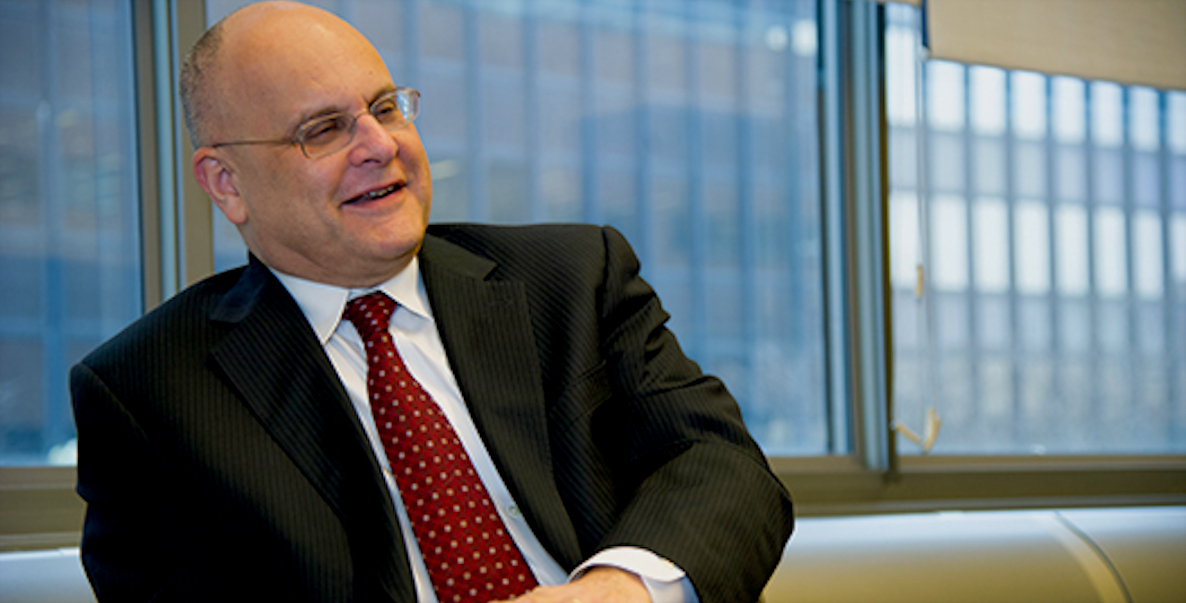Believe it or not, the Declaration of Independence doesn’t contain the word “meritocracy.” Indeed, it would be nearly 200 years before the term was introduced into the American vernacular, and another 40 until it become a shibboleth of the dominant neoliberal corporate/political class, but the notion runs through the sacred text of America’s founding document.
In casting off the tyrannical yoke of British monarchy, the Declaration enumerates a collection of God-given, unalienable rights, including (among other biggies such as life and liberty) “the pursuit of happiness.” Perhaps the most elegant hedge in the history of American political philosophy, the phrase establishes that while a right to happiness itself is too tall an order for any god or government to bestow, no state action must interfere with one’s right to chase after happiness, the success of that chase to be determined only by the pursuer’s quickness of wit, steadfastness of will and sharpness of elbow. In other words, the “equality” of “all men” (not counting women and Africans, of course) was to manifest in an equality not of outcome, but of opportunity.
The less ostentatious 9.9 percent are really causing all of the problems. They are, frankly, people like me, and quite possibly, people like you.
But is our meritocracy really a system that advances that principle? Or is it a deception designed simply to create a new order aristocracy? After all, lately it seems that the greatest trick the class of meritocratic winners ever played was convincing itself it doesn’t exist. In a recent piece for The Atlantic, Matthew Stewart argues that the worst enablers of galloping inequality in America are not the megaplutocrats of the 0.1 percent but the rest of the top decile, the bland and unassuming 9.9 percent. As Stewart puts it, this cohort comprises “the principal accomplices in a process that is slowly strangling the economy, destabilizing American politics, and eroding democracy.”’
To be sure, the top ten percent of the top one percent have been almost the exclusive recipients of the upward redistribution of wealth over the past 50 years, but as the economists Emmanuel Saez and Gabriel Zucman have observed, that transfer has come entirely from the bottom 90 percent. In the mid-1980’s, this group collectively held 35 percent of the American wealth. Thirty years later, that share had fallen by 12 points, precisely the amount gained by the top 0.1 percent. Meanwhile, the 9.9 percent quietly held fast to its share of an expanding economy year after year.
![]()
With their dreams of space exploration and thirst for human blood, the ostentatious Bezoses and Thiels of the world grab all the headlines. And while their vast billions are perhaps the most grotesque manifestation of an economic craps table whose odds are almost completely divorced from the performance of actual human labor, it’s the less ostentatious 9.9 percent who are really causing all of the problems.
These are accountants who set up the offshore tax shelters for the tycoons’ riches, the corporate lawyers and bankers who orchestrate their leveraged buy-outs, the management consultants who right-size their workforces, the government relations specialists who massage their business interests into legislation, and the radiologists who scan their prostates. They are, frankly, people like me, and quite possibly, people like you.
Because the meritocrats exist near, and often serve, the plutocratic stratosphere without actually occupying it, we know that we are not the villainous and vilified oligarchs of a Thomas Nast cartoon, but hard-working, industrious, rational successful members of a “middle class.” We tend to adopt a comfortable, moderate politics of social liberalism/fiscal conservatism. We don’t like racism and sexism; we promote diversity; we support marriage equality; we think science is real; we’re not overly enthusiastic about bombing other countries to smithereens on dubious pretenses.
The meritocratic class forgets the policies of the past that propelled us on an upward trajectory. Having busted our tails to get to the top of the heap, we think, why should the fruits of our hard work be redistributed to those who lack merit?
Generally speaking, we prefer things to be good rather than bad. We think of ourselves as down to earth, and unlike the multibillionaires for whom cash has become a vague abstraction, money is for us very much an object. We are in competition with our colleagues for bonuses, raises and promotions; we have private school and liberal arts college tuitions to pay, and perhaps even the monthly mortgage payment on our vacation home (singular) is stretching us a bit thin.
These tribulations, while perhaps not as urgent as those faced by the one in five American children facing food insecurity, or the 50 percent of Americans who have less are no less sincerely felt by the meritocratic class, and so imbue us with a sense that we have overcome obstacles to, and therefore earned, our success. But because we live only one life and have a very American tendency to ignore history, we forget the policies of the past that propelled us on an upward trajectory.
![]()
We forget the New Deal’s establishment of social security (which excluded farm and domestic workers, disproportionately represented by people of color). We forget the G.I. Bill that made college accessible to our grandparents. We forget the housing policies that put home loans within reach of many Americans (though not Americans of color, who were redlined out of eligibility and have never caught up). We forget the mortgage interest deduction that further sweetens the pot for those of us who can access home loans. The list goes on.
But because we haven’t kept track of that list across generations, the meritocratic class—in keeping with the basic premise of meritocracy—is convinced that we succeeded all on our own. So we indignantly declare that we get into Ivy League schools not because we have connections (other than maybe a grandpa alum) or prep school pedigrees, but because we busted our tails. And having busted our tails to get to the top of the heap, we think, why should the fruits of our hardwork be redistributed to those who lack merit?
So we cheer at the news that “the era of big government is over”; we shrug when the Department of Housing and Urban Development has its budget slashed by 40 percent; we pay no attention when public schools are left to cook and collapse; we nod approvingly as new work requirements are lashed to Medicaid eligibility; we whistle blithely as funding for public transportation and infrastructure renovation is cut to the bone. We may privately think that a $1.5 trillion tax cut is maybe a bit excessive, but that doesn’t mean we’ll send our excess refund back to the IRS. The list goes on.
If we need more proof that our so-called meritocracy is a sham, we need look no further than our zip codes. A promise that all men have the right to pursue happiness doesn’t mean much if your ability even to get to the starting line is literally contingent upon which side of the street you were born.
If we need more proof that our so-called meritocracy is a sham, we need look no further than our zip codes. A new collaborative data set by the Census Bureau, Harvard and Brown reveals—at the census tract level—where kids have a chance to get ahead in life and where they’re consigned to carry on a probable legacy of poverty and want. A promise that all men have the right to pursue happiness doesn’t mean much if your ability even to get to the starting line is literally contingent upon which side of the street you were born.
The meritocratic class thinks of ourselves as enlightened, self-aware and the embodiment of American liberal values. If we are sincere in that mode of thought, it is long past time that we turn our attention, with its mixture of envy, awe and resentment, away from the tiny cohort of the 0.1 percent, and toward the 90 percent who are slipping further and further behind as we more deeply entrench our own position. But shifting the balance for the better means taking a hard, critical look at our self-serving behaviors as a class, and reverse the mistakes of our forgotten past. Otherwise, we are guaranteed a future of happiness for the few and grief for the many.
Ajay Raju, an attorney and philanthropist, is chairman of DilworthPaxson and a founder/board member of The Citizen.
Photo: Amtec Photos via (CC BY-SA 2.0)






